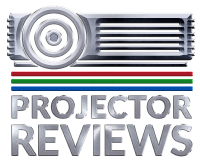How does the Sony VPL-VW70 compare to other 1080p home theater projectors on the market?
In this section, you will find my comments on how the Sony VPL-VW70 stacks up compared to a number of projectors. Of the projectors mentioned, several are noticeably less expensive, the least expensive of which is the Epson Home Cinema 6500UB, which sells for well less than half the price. Others selling for noticeably less are the Mitsubishi HC7000 and the BenQ W20000. If you are torn between a significantly less expensive projector or dropping the "big bucks" on the Sony, there are others you can consider, but we just can't spend the time to compare every projector to every other.
Click to enlarge. SO close
Let's get started with what is perhaps the Sony VPL-VW70's closest competitor, the JVC DLA-RS10 (read review), and it's virtually identical twin, the JVC HD350.
![]() Click Image to Enlarge
Click Image to EnlargeVPL-VW70 vs. JVC DLA-RS10 and HD350
Before we get started, note that the only difference between the HD350 and the RS10 is cosmetic. The two models are sold by two different JVC groups: The RS10 from the Professional group, and the HD350 by the Consumer group.
Let's start by saying both the Sony and JVC are excellent projectors. Both use LCoS technology, though each gives theirs, their own name (SXRD for Sony, D-iLA for JVC).
Let's start with brightness. No contest here, the JVC projectors simply out-power the Sony projector. In "best mode" the JVC models are just over twice as bright. This assumes that the Advanced Iris (dynamic iris) is engaged on the Sony. The JVC's don't have a dynamic iris. Without the dynamic iris engaged, the JVC is still 50% brighter and does better black levels. With the dynamic iris engaged on the Sony VW70, the VW70 can beat out the JVC RS10 and HD350 slightly in black levels on the darkest scenes with no really bright areas. In mixed scenes, the JVCs beat the Sony. Overall, however, I consider the RS10 and Sony VW70 to be roughly equal in black level performance.
When considering "brightest mode", the JVC projectors still have a real advantage, as they measure about 33% brighter than the Sony. Bottom line on brightness - JVC wins hands down.
When it comes to image quality, again, both projectors are very good, however, I give the advantage to the VW70. With its sophisticated color management system, it will produce slightly more accurate color, and tighter grayscale balance. The JVC does have a tendency to oversaturate some primary and secondary colors, such as green. Without a CMS (color management system), you just cannot reduce that green oversaturation on the RS10 (and HD350).
Here are a pair of side by side images of the Sony (left) and JVC RS20 (right):
As a result, skin tones do look a little more natural on the Sony. Mind you, both produce a really impressive picture, but for purists, at least from a color standpoint, the Sony has the advantage.
Both Sony and JVC projectors do offer support for an anamorphic lens. The JVC is definitely about a size smaller as the Sony is particularly large. Both are very attractive looking projectors (for those that care, or perhaps, their wives).
The JVC likely should have noticeably longer lamp life (keeping ownership costs down), but hard to say for sure, since Sony does not publish lamp life specs. Both offer a two year, parts and labor warranty.
Sony has a great remote control (outstanding). JVC's, well, it pretty much sucks! I normally don't toss around terms like that, but I am a JVC owner, and while their remote has a very good layout, its range is a serious problem. You can get a bounce off of the screen in most setups, but you'll need to be very precise in your pointing, just a few degrees off, and, bingo, the projector won't react. With the Sony, on the other hand, getting a good bounce doesn't require much more than pointing to almost any part of your screen. (Of course anyone can buy a universal remote and solve that problem for the JVC.)
Handling of dark scenes is worth additional comments. While black levels will vary on the Sony depending on what a particular scene allows the dynamic iris to do, when the Sony iris does close down, there is definitely some compression of the image's dynamic range. In other words, the JVC produces a dark scene with slightly more ":pop and wow" factor. This should not be great, but it would be noticeable in a side by side.
Neither projector offers creative frame interpolation, but both will convert 24fps to 48fps (basic frame interpolation).
All considered, two excellent projectors, with the JVC typically being a bit less expensive. It's a tough call between these two. The JVC wins in more areas than the Sony, but the Sony VPL-VW70's slightly more accurate color will be tie breaker for some. Had the Sony been reviewed in time for my 1080p Projector Comparison Report, I would have spent a good amount of time trying to decide which one would have received our Best In Class - Runner-up award (which did go to the RS10).

